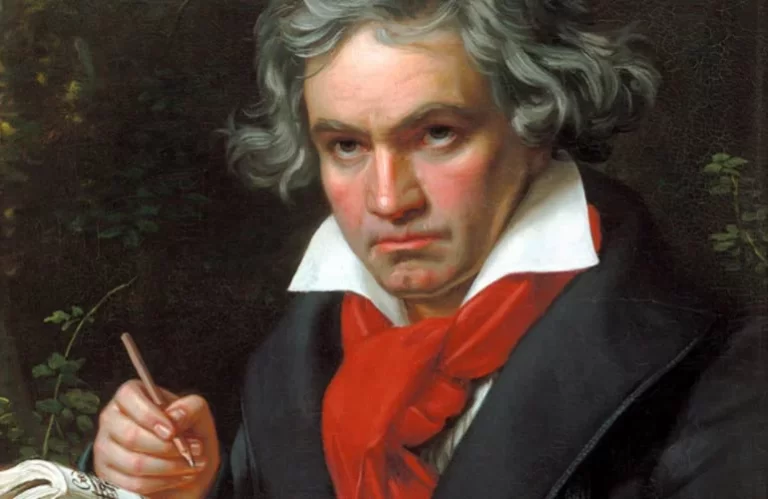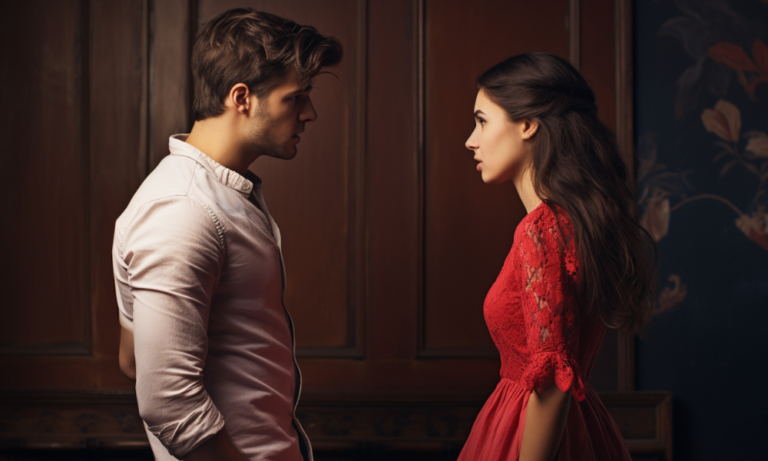Chicago Sun-Times columnist Neil Steinberg blew the cover off my dad’s tough guy image last week with the startling revelation that Mike Royko loved opera. With some assistance from my own reservoir of memories, he reported that Dad had season tickets to the Lyric Opera and, no surprise, strong opinions about what constituted a good and bad opera.
If you read Dad’s column, there were many hints about his passion for and knowledge of classic music: like the time he offered to conduct the Chicago symphony performing Beethoven’s Ninth Symphony – but only if they would hoist him into the air so he could use all four limbs.
His true feelings for Beethoven’s Ninth were anything but comic. He adored it. It was almost sacred to him (almost, because he was an atheist), as were the rest of Beethoven’s great symphonies.
Surviving High School
Dad didn’t grow up listening to classical music. He did grow up craving great stuff, especially literature. He didn’t go to college. In fact, he finished high school a bit later than he should have, hating it, bored by it, and showing it by getting booted out of more than one, finally graduating from Central YMCA just before he shipped out to fight in the Korean War.
He was a constant reader. By the time he was wooing my mother via letters from an Air Force Base, Dad would pepper the pages with Schopenhauer’s theories of attraction, Somerset Maugham’s views on love, and quotes (without mentioning him by name) from Beethoven’s “Immortal Beloved” letters. Not bad for a 21-year-old neighborhood guy who just barely had a high-school diploma.
Dixieland, Fats Waller and The Weavers
He fell in love with jazz of the truly old school—Dixieland—while in Dixie and basic training in Biloxi, 1952. He learned how to play acoustic guitar and put his basso pipes to work singing folk songs in harmony with my mother’s clear alto. He loved Fats Waller and The Weavers, and countless other artists from many genres.
But nobody ranked above Beethoven in his pantheon of heroes. Not Shakespeare. Not even Algren. When he was a young reporter on the night shift and a Beethoven symphony was scheduled to air on WFMT, Dad would go to a room with a radio, shut the door, and disappear until it was over.
His was a generation of Men (with a capital M) who did not view art and culture as effete or things to scorn as elitist, but something to be embraced as the property of all and enjoyed, simply and profoundly. Toscanini, after all, was big business for NBC radio and RCA records before and after World War II, providing great music to the masses––everyone from the bank’s vice-president to the mail-room clerk.
Dornfeld’s Disciple
Dad’s mentor in Beethoven was the legendary Arnie Dornfeld, his boss the City News Bureau, and another Man’s Man. Dornfeld would invite reporters to his house for listening sessions where records of Beethoven symphonies and other masterpieces would be heard and discussed. By the time I was a kid (born in 1959), Sunday mornings would begin at sunrise with Dad blasting Sousa marches, Zorba the Greek’s bouzouki soundtrack, and Beethoven’s Eroica symphony (to name three heavy-rotation favorites) and my brother and I would run out of our bedroom to “dance” (spin around until we fell over dizzy).
Steinberg asked me if Dad and I ever went to operas together. I don’t recall that we did. A few Chicago Symphony concerts, yes, and a memorable “community” orchestra performance of Beethoven’s Ninth. But it was Mom who took me to my first opera. They had season tickets, but when mom died suddenly of an aneurysm in September 1979, Dad had no interest in the upcoming season. Handing me the tickets, he said, “Go yourself, throw them away, I don’t care.”
As I recollect, it was a terrific season. There was Ghiaurov, Krauss and Freni in Faust, Sherrill Milnes as Boccanegra, John Vickers as Tristan, and Domingo as Chenier. Pavarotti showed up and delivered the Duke in Rigoletto with Judith Blegen and a young Riccardo Chailly in the pit. I don’t think Dad ever knew how much I enjoyed it, or could even think about how much he and Mom would have, if only…And he would have been tickled by my first piece for the Sun-Times last month on Riccardo Muti’s recordings.
Like Father, Like Son
One of the reasons, maybe the major reason, I became a serious classical fan was Dad. Besides the typical son-wanting-Dad’s-approval, I figured that if he thought something was great, it probably was. And, he was clearly (though quietly) elated when I “discovered” classical music sort-of on my own.
I was a progressive rock nut (Gentle Giant, Yes, Genesis, ELP, King Crimson) well into the 1970s. While I respected classical music, I hadn’t paid much attention to it until, on my 17th birthday, Mom and I were at the local grocery store where a rack of Funk and Wagnall’s “Family Library of Great Music” LPs was on display. The first one in the series was only 69 cents: Beethoven’s Pastoral symphony. I asked my mother if it was any good, and she said it was one of her favorites.
That Christmas, Dad gave me the newly issued box of Solti and the Chicago Symphony’s Beethoven cycle. On my next birthday, Dad gave me Toscanini’s RCA Beethoven symphonies set. Dad was not a casual listener, and hearing differences between interpretations was a big deal to him. His all-time favorite Seventh was Mengelberg’s live 1940 Concertgebouw recording.
One of my most vivid memories of Dad and his music was driving somewhere together when he pushed a cassette into the tape player. This was probably the mid 1980s. The music on the cassette happened to be Brahms’ first symphony. Dad said the one composer he’d come to love more with age was Brahms. I felt then, and still do, that one of the greatest moments in symphonic music is the horn solo over the cloud of strings that ends the fourth movement’s introduction. As the movement began, I got a little anxious because I didn’t want it to be background to our yapping. But I didn’t want to “shush” Dad in his own car (or ever, for that matter). Just then, he shushed himself and cranked the volume.
“Wait, we can’t talk over this part,” he said.
As the sounds washed over us, I saw that his eyes, too, were a bit teary.




